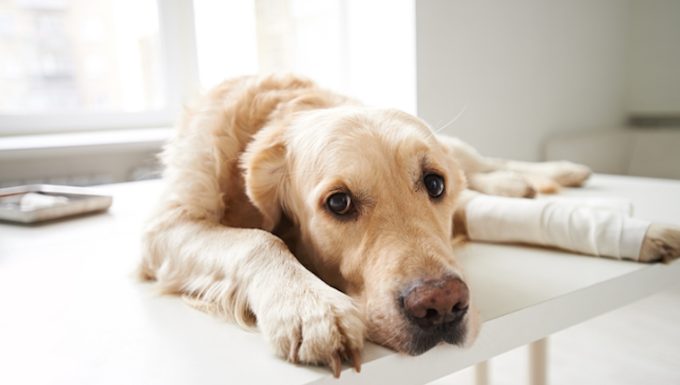Pain (acute, chronic and postoperative) in dogs is a condition that often happens after a surgery. Usually, the condition is caused by tissue damage.
Unfortunately, the precise source of the pain can be hard to pinpoint. This is because all dogs vary in their response to pain.
If you see the signs of the condition in your dog, then get to a veterinarian for a proper diagnosis and treatment.
Here’s what you should know about the symptoms, causes, and treatments for the condition.
Symptoms of Pain (Acute, Chronic and Postoperative) in Dogs
The condition produces a number of symptoms. For example, some of the most common symptoms include:
- Vocalizing the pain
- Depression
- Shallow breathing
- Trembling
- High heart rate
- Sensitive to touch
- Appetite loss
- High blood pressure
Causes of Pain (Acute, Chronic and Postoperative) in Dogs

The cause of the condition can be a number of things. For instance, some of the most common causes include:
- Surgery
- Trauma
- Degenerative issues
- Injury
Treatments for the Condition in Dogs
Firstly, your vet will ask about your dog’s symptoms. Secondly, your vet will ask about any circumstances where your dog could have suffered from a trauma.
Thirdly, your vet will carry out a full physical examination. This is to attempt to rule out other conditions. Also, blood and urine tests will be taken.
Generally, treatment usually involves medication to lessen and manage your dog’s pain. As always, if your vet prescribes your dog any medicine, make sure to stick to the correct dose and frequency instructions. Also, complete the full course of medicine.
While recovering at home, your dog will need to have their exercise and mobility limited. Your vet can help formulate a safe exercise recovery plan for your dog.
Additionally, losing weight can help if your dog is overweight. This is to lessen the impact on any joints. Your vet will help suggest safe and nutritionally balanced diet changes for your dog.
Have you ever cared for a dog who suffered from this condition? How did your vet help your dog recover? Let us know in the comments section below.









